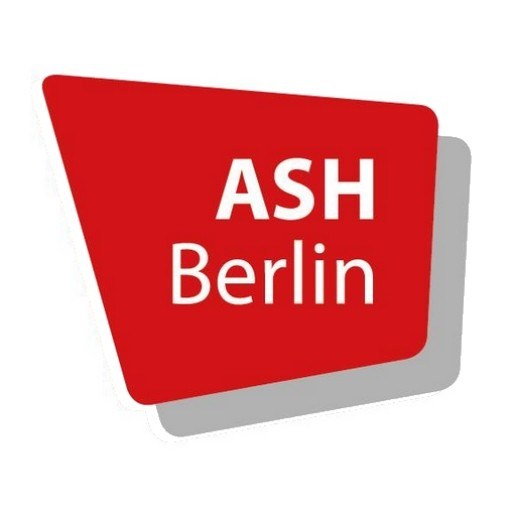The MA-SWHR is a research-oriented, partially internet-based programme, combining the field of social work with human rights issues. Social work and human rights are frequently encountered when working with vulnerable groups such as children or migrants, or when working on issues relating to the right to health, the social problem of poverty, social exclusion, gender discrimination, or the problem of racism. The main aim of the MA-SWHR is the translation of the often very abstract and appellative human rights discourse into the theory and practice of social work. This objective is strongly linked to the development of a general professional self-conception based on the "triple mandate of social work", meaning that the universally known "double mandate of social work" on behalf of the addressees and the society/providers is complemented by a third mandate on behalf of the profession: this consists of science-based theories of action and intervention as well as the principles of the profession's code of ethics.
Educational organisation
The MA-SWHR comprises the following five modules:A Modules: BASIC KNOWLEDGE ABOUT THE DISCIPLINE AND PROFESSION OF SOCIAL WORK AND HUMAN RIGHTS
(These modules are compulsory for all students.)
A 1 World Society and the Agenda for Social Work and Social Development (15 ECTS)
A 2 Social Work and Human Rights (15 ECTS)
A 3 International Law: A Social Work Perspective (15 ECTS)
A 4 Critical Social Science Research (15 ECTS)
B Modules: SOCIAL PROBLEMS/VULNERABLE GROUPS
(Students select a minimum of two from five modules on offer.)
B 1 Health and Human Rights in Social Work (7.5 ECTS)
B 2 Migration and Racism (7.5 ECTS)
B 3 Poverty and Social Exclusion (7.5 ECTS)
B 4 Gender and Human Rights (7.5 ECTS)
B 5 Children's Rights (7.5 ECTS)
C Modules: SOCIAL ACTION FIELDS/SOCIAL MOVEMENTS
(Students select a minimum of two from four modules on offer.)
C 1 Human Rights Education (7.5 ECTS)
C 2 Practice of Human Rights-Based Social Work - Locally, Nationally, and Internationally (7.5 ECTS)
C 3 Human Rights Projects as Innovation in Social and Health Agencies (7.5 ECTS)
C 4 Public Relations (7.5 ECTS)
D Module: HUMAN RIGHTS PROJECTS
(This module is compulsory for all students.)
Human Rights Projects is dedicated to the realisation of a specific project developed by the student with the support of academic experts and/or experts in the practical field.
E MODULE: MASTER'S THESIS
(This module is compulsory for all students.)
Forms of assessment
Forms of examination follow the General Framework of Examination Regulations of the ASH in accordance with the Berlin Law on Higher Education (BerlHG):1. Test
2. Seminar paper
3. Essay
4. Portfolio
5. Online papers
6. Oral presentation (followed by written paper)
7. Group presentation followed by 3,000-word essay
8. Oral exam
9. Project report
10. Project presentation
11. Master's thesis
12. Colloquium
Language requirements
The language of instruction is English. All applicants must demonstrate an acceptable level of proficiency in the English language before being admitted to the Master's programme. English language certificates should not be older than two years and should indicate a high score. Any ONE of the following tests is considered to be sufficient proof:- Cambridge Advanced Certificate (CAE) -> recommended test result "GRADE B" or better
- Test of English as a Foreign Language (TOEFL) -> recommended test result 90 points computer-based or better
- International English Language Testing System (IELTS) -> recommended test result "GRADE B, 6.5" or better
- An academic degree from a recognised institution at which English is the language of instruction
Academic requirements
You must have an undergraduate degree in a relevant discipline, e.g. social work, social sciences, law, humanities or cultural sciences, and a minimum of one year of professional or voluntary work experience in a related field. Furthermore, you are expected to demonstrate adequate training in research skills as well as proficiency in English.A complete application comprises the following documents:
- Completed application form (available on our website)
- Completed letter of motivation
- Curriculum vitae
- Copies of certificates and academic records (to be validated upon arrival!)
- Copies of letters of evaluation from past or current employers (at least two)
- Proof of English language proficiency
- Proof of financial means demonstrating how you plan to finance your studies
Want to improve your English level for admission?
Prepare for the program requirements with English Online by the British Council.
- Flexible study schedule
- Experienced teachers
- Certificate upon completion
📘 Recommended for students with an IELTS level of 6.0 or below.

Enrolment fees
300 EUR administration feeA semester ticket (optional) covering public transport in the Berlin area currently costs 188.90 EUR and is valid for a duration of six months.









